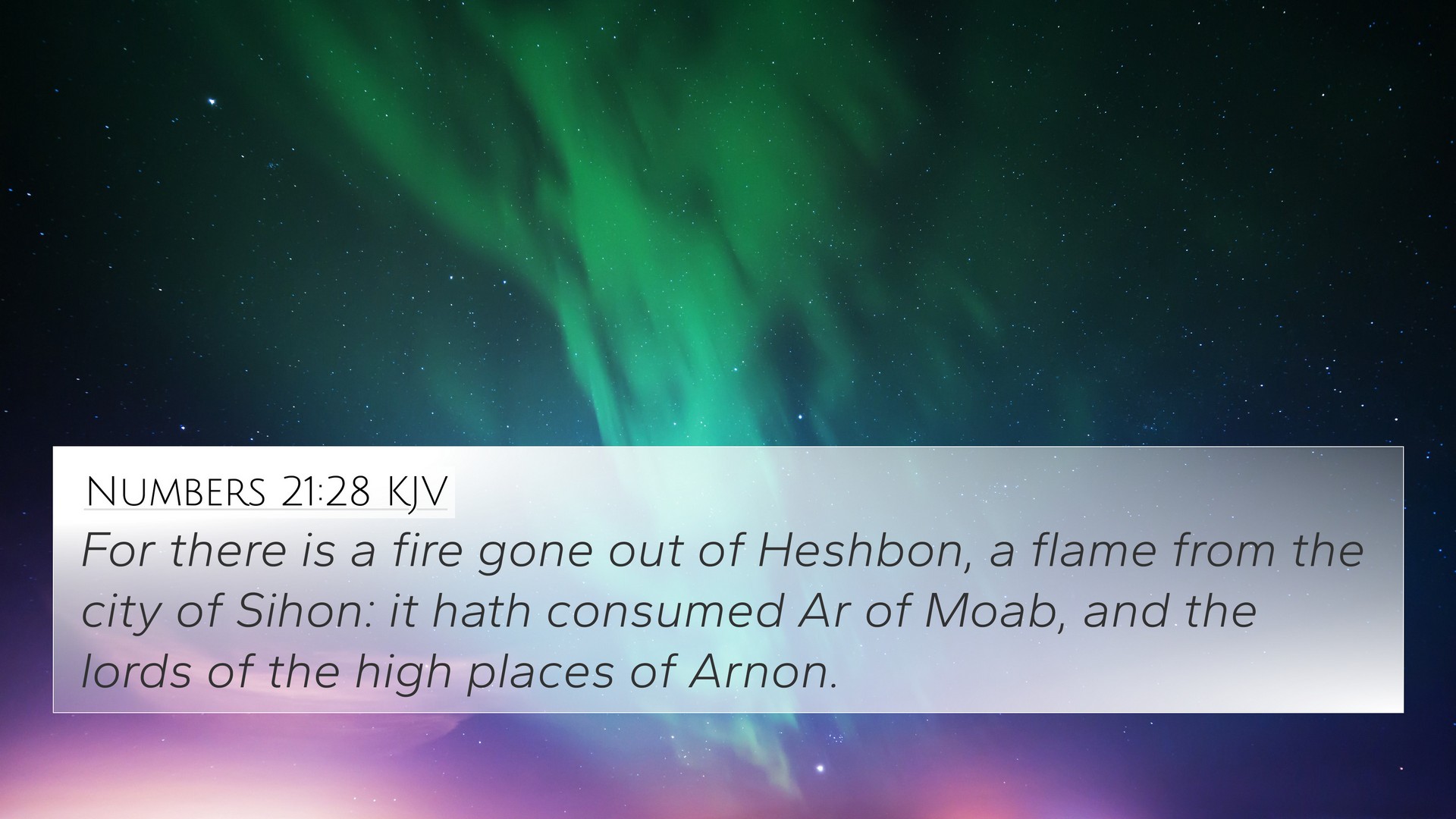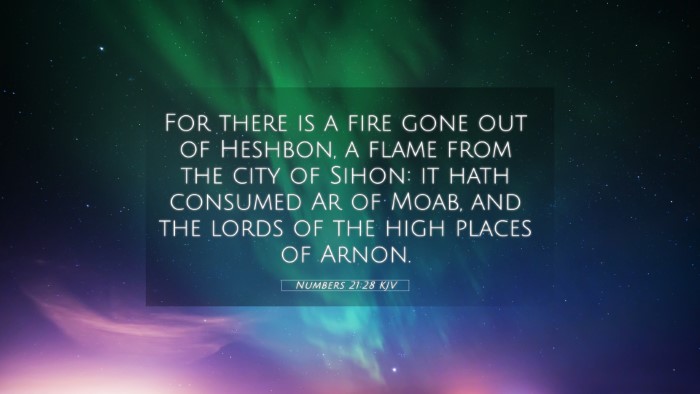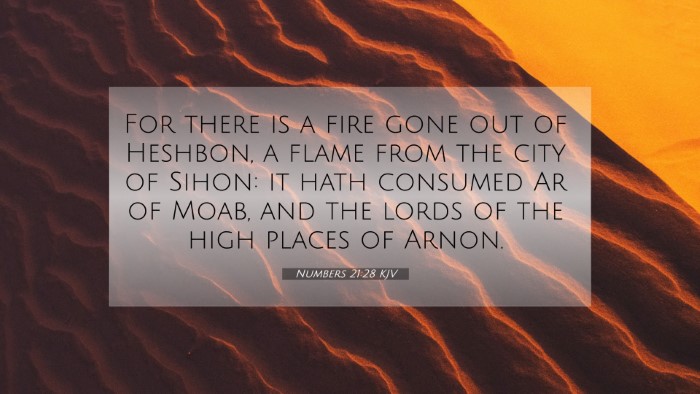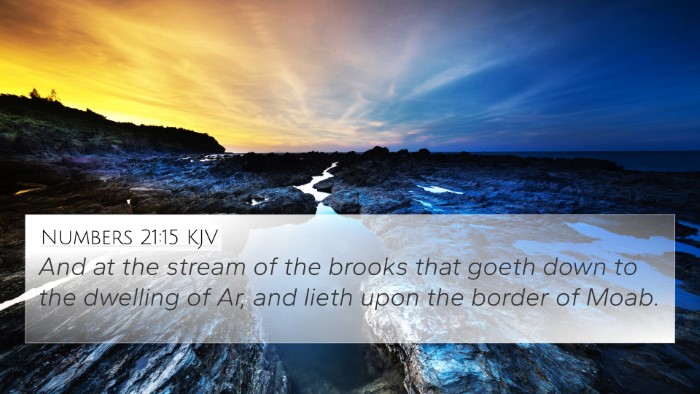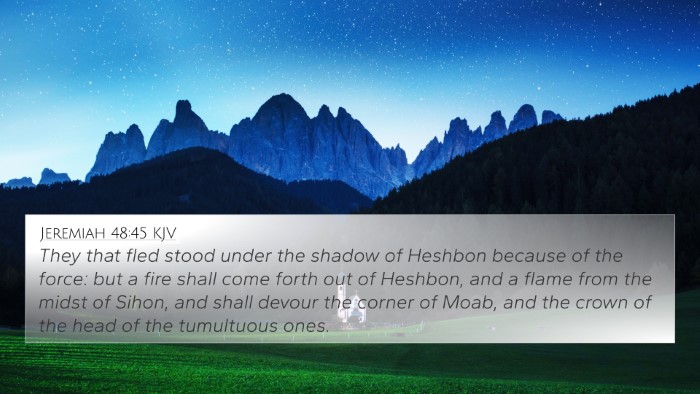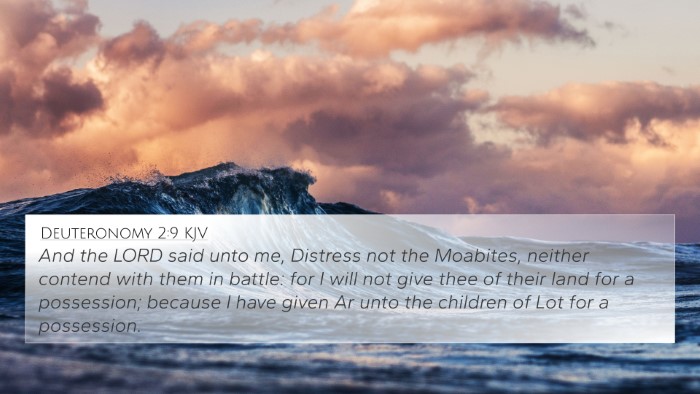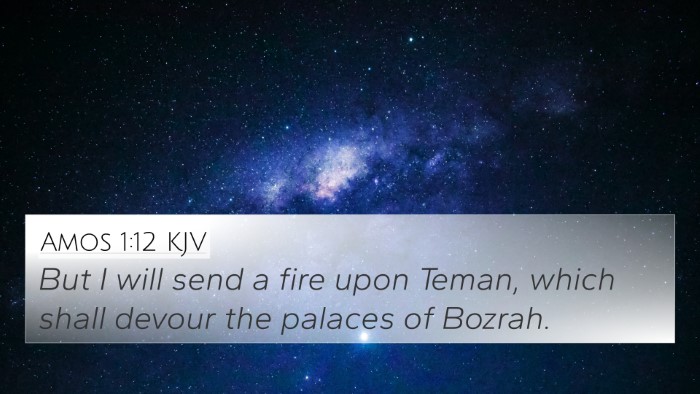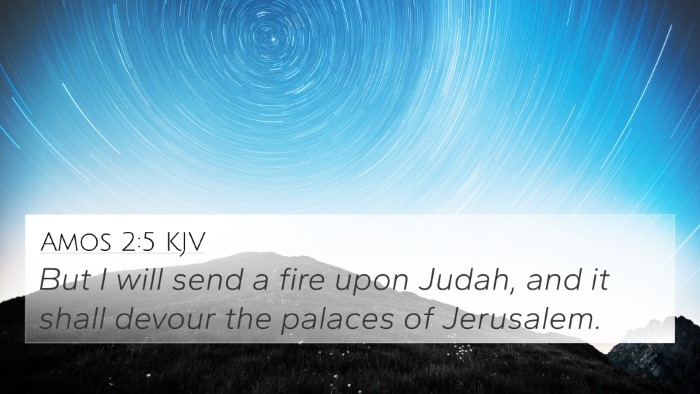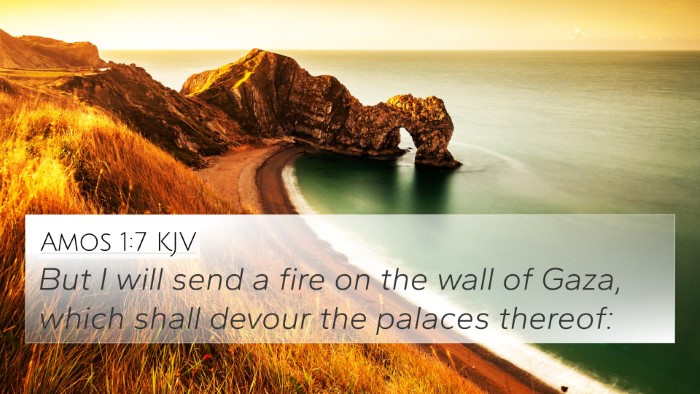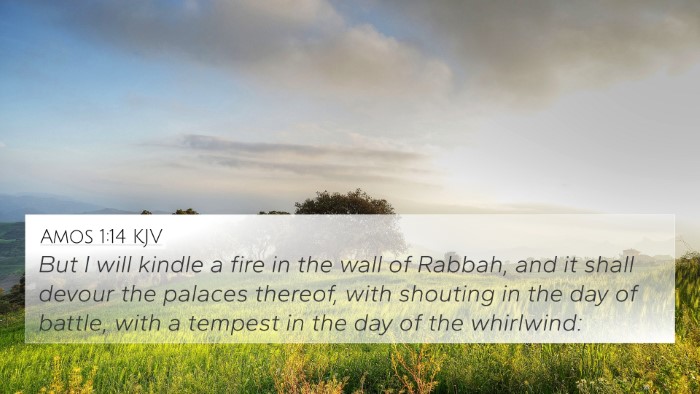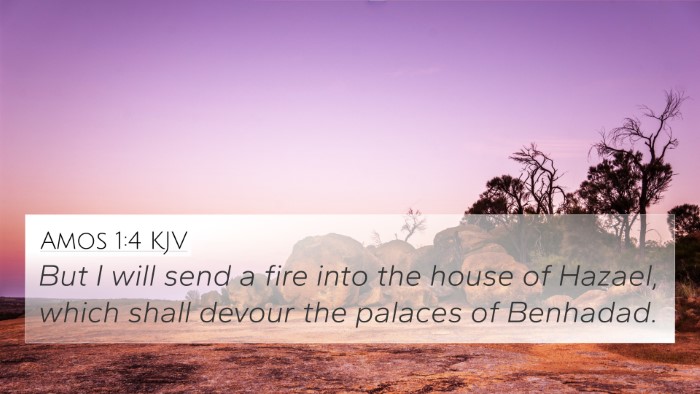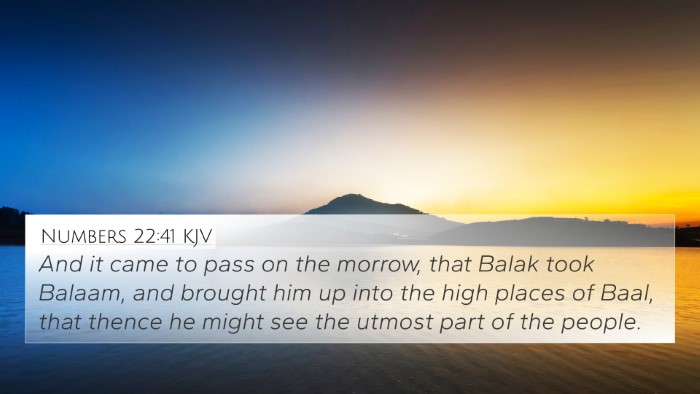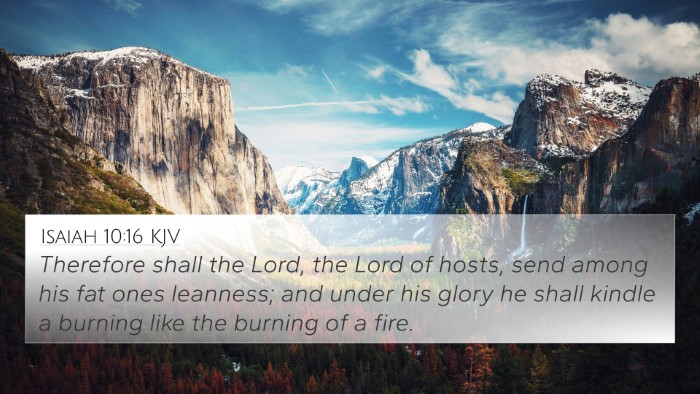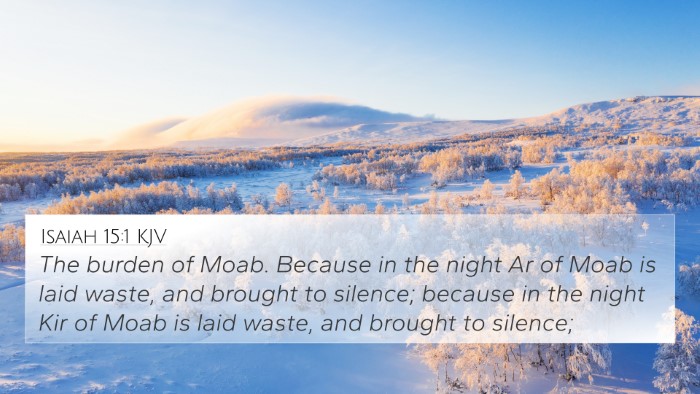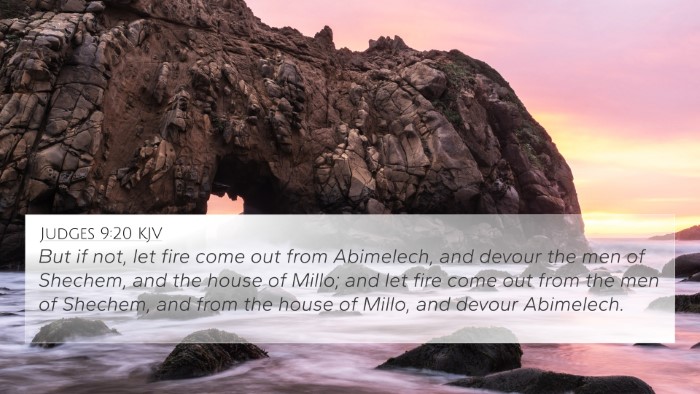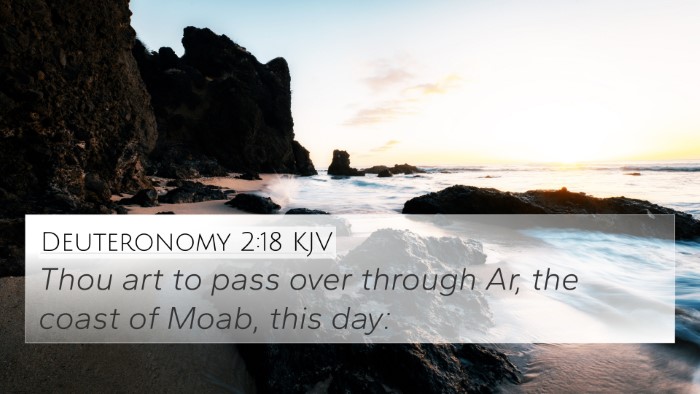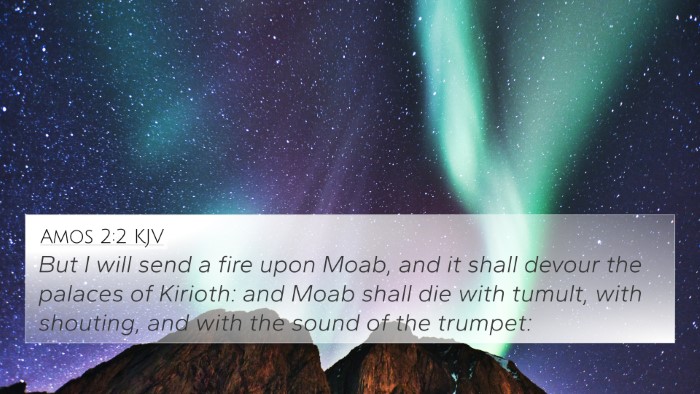Understanding Numbers 21:28
Numbers 21:28 states, “For there is a fire gone out of Heshbon, a flame from the city of Sihon: it hath consumed Ar of Moab, and the lords of the high places of Arnon.” This verse reflects a significant moment in the journey of the Israelites and unveils deeper theological insights when cross-referenced with other biblical texts.
Verse Meaning and Context
This verse occurs within the narrative of Israel's journey through the wilderness and their conquests over the lands inhabited by the Moabites and Amorites. The “fire gone out of Heshbon” symbolizes divine judgment or the power of God as the Israelites approach the Promised Land. It highlights their military successes and God’s involvement in their victories.
Commentary Insights
Matthew Henry emphasizes the significance of the victory and the destruction of Ar, indicating that it serves as a warning to others who would oppose God’s people. The fire metaphorically represents God's judgment, showcasing how He extends His sovereignty over nations.
Albert Barnes notes that Sihon, king of the Amorites, had previously challenged Israel, leading to a shift in power dynamics as God enabled Israel to triumph. This triumph was not merely a military success but a testament to God's promise to deliver the land into Israel's hands.
Adam Clarke further elaborates on the implication of the high places being consumed. This indicates not just a physical conquest but a spiritual victory over idolatry, as the “high places” were often sites of false worship among the Moabites.
Bible Verse Cross-References
- Deuteronomy 2:24-25 - God commands the Israelites to confront Sihon, indicating His active role in their conquests.
- Joshua 12:2-3 - Describes the victory over Sihon and its implications for the land distribution among the tribes of Israel.
- Isaiah 16:11 - Reflects on the destruction of Moab, linking back to the judgment highlighted in Numbers 21:28.
- Jeremiah 48:45 - Further details God's judgment against Moab, affirming the prophetic nature of the initial victory.
- Romans 8:31 - "If God is for us, who can be against us?"—a New Testament reflection of God’s deliverance in Numbers.
- 1 Corinthians 10:11 - These events serve as types and examples for believers today, reinforcing the sovereignty of God over nations.
- Psalm 60:8-10 - Acknowledges God’s sovereignty regarding nations, paralleling the message of victory seen in Numbers 21.
Thematic Bible Verse Connections
The themes of divine judgment and victory pervade not only the narrative of Numbers but are echoed throughout scripture. As believers study these connections, they gain insights into God’s nature—not just as a deliverer but as a sovereign authority over nations.
Cross-Referencing Biblical Texts
The process of cross-referencing allows readers to see how various scriptures interact with one another. By analyzing related texts, such as the conquest narratives in Joshua or prophetic warnings in Isaiah, believers can better understand the implications of God's actions in history.
How to Use Bible Cross-References
To identify connections between Old and New Testament readings, begin by noting key phrases or concepts in each verse. Utilize tools such as a bible concordance or a bible cross-reference guide to find relevant verses, enhancing your study and understanding.
Conclusion
In conclusion, Numbers 21:28 serves not only as a historical record but as a vivid reminder of God’s intervention in earthly affairs. By employing cross-referencing Bible study methods, believers can uncover rich insights into the narrative's theological significance, fostering a deeper connection with the overarching story of redemption woven throughout the entire scripture.
